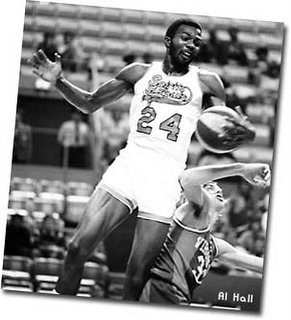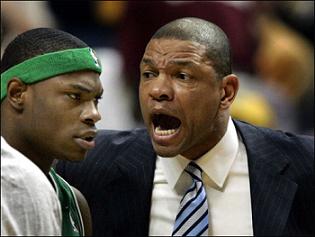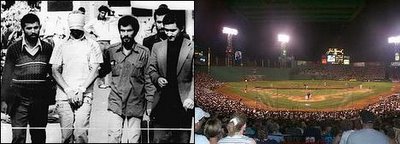
Back on January 9th, Mike McCann posted a story on ex-athlete politicians (
A Juke Move on Voters? Sports Acclaim and Becoming a Lawmaker). One of the questions that arose was why ex-athletes seemed to have such great success in the political arena. Some of the comments indicated that excellence and leadership skills in a particular sport could translate to the political arena, while others acknowledged that American politics often devolves into a popularity contest with celebrity being the more powerful force wielded by former athletes seeking political office.
As indicated in the post and subsequent comments, many former athletes, including minorities, run as Republicans. While this may be the result of a desire to self-preserve wealth accumulated through athletic achievement by aligning with a party that has more favorable fiscal policies towards the wealthy than Democrats, what about athletes that have fallen on troubled times and lost wealth and/or future earning potential?
One route has been community activism and involvement. One of the best examples is
Marvin "Bad News" Barnes, former Providence College and ABA star. After being a two-time All-State selection at Providence's Central High School for undefeated state title teams in 1968 and 1969, he starred at Providence College, where he was twice named an All-American, leading PC to the Final Four in 1973.
Although selected as the No. 2 pick behind Bill Walton in the first round of the 1974 NBA draft, he signed a $2.2 million contract with the ABA Spirits of St. Louis. Though "Bad News" was named Rookie of the Year in 1975 (over Moses Malone) and was later chosen one of the ABA's greatest 30 players. He bounced around with four teams in the NBA from 1976-80, ending his career being cut by the Clippers after just 20 games. This is an
excerpt from his days as a Boston Celtic:
"I remember this one game, I was sitting at the end of the bench," he recalled. "I had a towel over my head and I was snorting coke and my nose was bleeding. Don Chaney and Nate Archibald moved all the way up to the front and I had four or five seats between me and the next player. I was snorting coke and it was tearing my membranes up. Snorting it and blowing my nose. It was like my brains were coming out in the towel and I couldn't stop snorting it anyway. It was terrible, man. I was addicted."
During his basketball career and afterwards, his struggles with alcohol, drugs, and violence would lead him to being homeless on the streets of San Diego at the age of 28.
After stints in rehab and jail, “Bad News” returned to Providence, eventually founding the Rebound Foundation, “dedicated to providing a strong and sensitive platform for all members of the human family to receive and respect life's blessings through motivational messages, athletic pursuits, drugs, counseling, legal aide assistance, and basketball camps. We stand for the enormous opportunities within our reach. We recognize that to realize the potential and power of our innate talents, we will need to confront challenges and overcome obstacles.”
While Barnes’ demons continue to haunt him (he was arrested for disorderly domestic conduct on December 22 for an incident with a female friend), his program appears to have made some meaningful, positive contributions to his old neighborhood.
While many counselors claim success by drawing on their own experience in overcoming struggles with problems like drugs and alcohol to help those utilizing their services, does an athlete abuser attain some higher level of credibility with those in need? In the case of Barnes and other athletes that have struggled with addiction (
Lawrence Taylor,
Darryl Strawberry,
Kevin Stevens, etc.), isn’t there a loss of connection with a counselee due to the level of fame and wealth accumulated and wasted? It is easy to point out potential for success to an all-star athlete as motivation, but what can these ex-athletes offer to those that do not enjoy professional-level athletic talent or potential? Are actual connections being made, or is athlete adulation clouding results? Are these athletes truly effective in giving court mandated talks as conditions of their probation?















